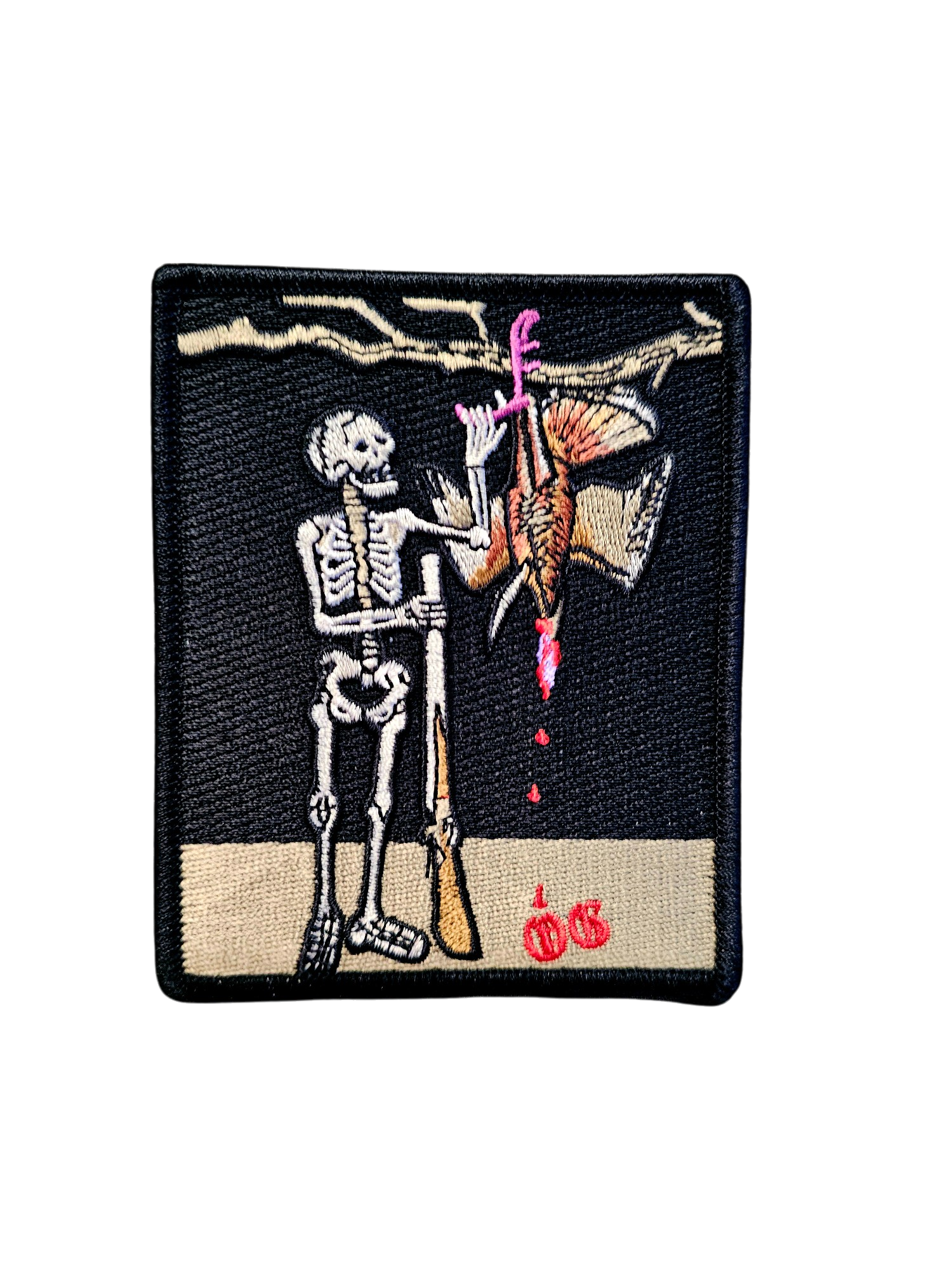First of all, reproducing the sound you are talking about for most callers is a matter of experimentation and practice. All of our abilities are not the same and all of our "mechanics" are not the same. You have to fit the call you use to match your ability and mechanics. I would suggest a lot of practice and using a variety of different call types until you find the combination that best suits you.
Now, for discussing the sound itself. I consider the alarm putt to be the most extreme form of what we commonly refer to as clucking. There are "contented" clucks, "where are you?" clucks, "aggravated" clucks, and "now I'm gettin' the hell out of Dodge" full-blown alarm putts.
First, the "hen" version...
Most of us that have been doing this a long time have seen the whole gambit. That is, we have seen hens come to our calling starting out with a semblance of the "contented" version, but then eventually working through all the various cluck/putt stages mentioned above.
In my opinion, the specific sound you are referring to falls into the "aggravated cluck" category. When a hen comes to your calling, she will reach a point where she expects to be able to see what is producing the calls she is hearing. Typically, when she doesn't see a turkey (Note: having a decoy out will help in these matters if you use one), she will usually start communicating her concern by starting to cluck and purr in an "aggravated" fashion.
The longer she cannot see the source of the calls, the more her aggravation will increase,...and the more pronounced her clucking and purring will become. At some point,...could be quickly or "after a bit",...she is going to get concerned enough that she will usually get to some level of the "alarm putt" stage.
What I have found over the years is that you can often hold them off a while from getting to the alarm putting phase, and then departing, by learning how to replicate that aggravated cluck and purr,...or just that staccato, popping cluck sound they start making. In a situation where a gobbler is trailing a hen (or hens) into your calling, that little bit of time that you can keep the hen from reaching the "we're gettin' out of Dodge" phase may be just enough to pull that gobbler into killin' range. That is the best you can hope for.
As for making that sound, here's the deal. Practice your calling until you can make all of those various clucking-type sounds as closely as you can. Again, your calling mechanics and the call you use will determine how well you can do that. Then, when a hen shows up and gets into the aggravated stuff with you, just try to imitate her sounds as best you can,....and then hope for the best!

Knowing how turkey hunters, in general, have a limited attention span,...and that folks get worn out by lengthy posts, I will go through the "gobbler version" of this discussion in a another post.
















